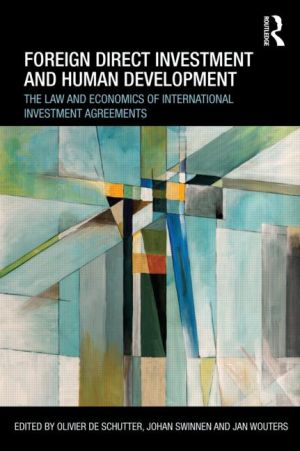
The effect on developing countries of the arrival of foreign direct investment (FDI) has been a subject of controversy for decades in the development community. The debate over the relationship between FDI in developing countries and the progress of these countries towards human development is an ongoing and often heated one. Adopting an interdisciplinary perspective combining insights from international investment law, human rights law and economics, this book offers an original contribution to the debate. It explores how improvements to the legal framework of FDI and to the way investment agreements are negotiated can maximize the contribution of FDI to human development. Through the use of original empirical data the book demonstrates the impact of bilateral and multilateral investment treaties on the flows of FDI, and the impacts of FDI on economic growth and on human development.
It evaluates how the legal framework both in capital-exporting countries and in capital-receiving countries could increase the benefits association with, and limit the risks involved in, the arrival of FDI in developing countries, especially countries with relatively weak governance. It goes on to set out recommendations for improving the regulation of FDI through better monitoring of international investment agreements, ensuring the accountability of agencies facilitating investment and enhancing the framework of negotiations. In this way the book offers clear guidance as to how to successfully reconcile FDI and human development. This book will be of interest to international lawyers specializing in law and development and in international investment law, as well as to development economists and policy-makers.